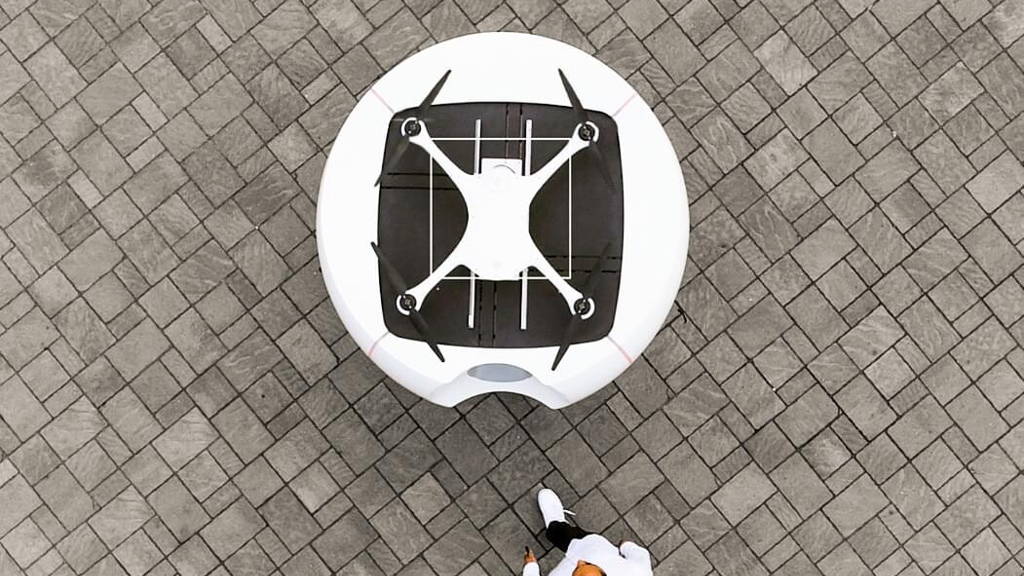The first delivery network will be operational starting next month, according to The Verge. Several more are to be introduced in the next year. Matternet says medical items can be delivered to hospitals within 30 minutes. The same goes for the drone networks in Ruanda and Tanzania. In the last country, hundreds of drones will deliver blood, medicine, vaccinations and other medical supplies to country hospitals in remote areas. Zipline is operating the networks.
US based Matternet was granted authorization to operate its drones over densely populated areas in Switzerland in March. It says that approval was a world first.The company last week unveiled a Matternet Station; a kind of white, futuristic looking postbox with a footprint measuring about two square meters, that can be installed on rooftops or on the ground to send and receive packages by drone.
“These types of diagnostics that need to be transported are urgent in nature and they are on demand,” Andreas Raptopoulos co-founder and CEO of Matternet told The Verge. “They have to wait for a courier, sometimes they get taxis to do this type of thing — and when you have a system like this, that is autonomous and reliable, it completely transforms operations.”
Users operate the system via an app to create shipment details. Items are placed into a compartment box in the station before being loaded into a drone for delivery. Currently the drones can hold up to 2kg (4.4 pounds). Packages are then flown to another Matternet station, where receivers can obtain their package by scanning a QR code.
As with drones for medical supplies, an important use case is that drones can get to an emercency in remote areas much faster than an ambulance.
US based Matternet was granted authorization to operate its drones over densely populated areas in Switzerland in March. It says that approval was a world first.The company last week unveiled a Matternet Station; a kind of white, futuristic looking postbox with a footprint measuring about two square meters, that can be installed on rooftops or on the ground to send and receive packages by drone.
Allowed to fly in dense areas
The drone network is part of a partnership with Swiss Post. According to both parties involved, it is significant because it’s the first operational drone network flying in dense urban areas that’s not a pilot run or in testing. A pair of hospitals in Lugano in Switzerland had previously tested Matternet drone flights to deliver lab samples. Matternet plans to establish a regular service starting in early 2018.“These types of diagnostics that need to be transported are urgent in nature and they are on demand,” Andreas Raptopoulos co-founder and CEO of Matternet told The Verge. “They have to wait for a courier, sometimes they get taxis to do this type of thing — and when you have a system like this, that is autonomous and reliable, it completely transforms operations.”
Users operate the system via an app to create shipment details. Items are placed into a compartment box in the station before being loaded into a drone for delivery. Currently the drones can hold up to 2kg (4.4 pounds). Packages are then flown to another Matternet station, where receivers can obtain their package by scanning a QR code.
Drones assist in Resuscitation
Recently, drones were introduced on a pilot basis to show they can deliver aid in cases such as cardiac arrest. New research from the Centre for Resuscitation Science at Karolinska Institute and Stockholm South General (Söder) Hospital in Sweden shows that a specially constructed drone, equipped with a defibrillator, can be dispatched by alarm and delivered automatically to the site of a cardiac arrest long before an ambulance arrives.As with drones for medical supplies, an important use case is that drones can get to an emercency in remote areas much faster than an ambulance.








